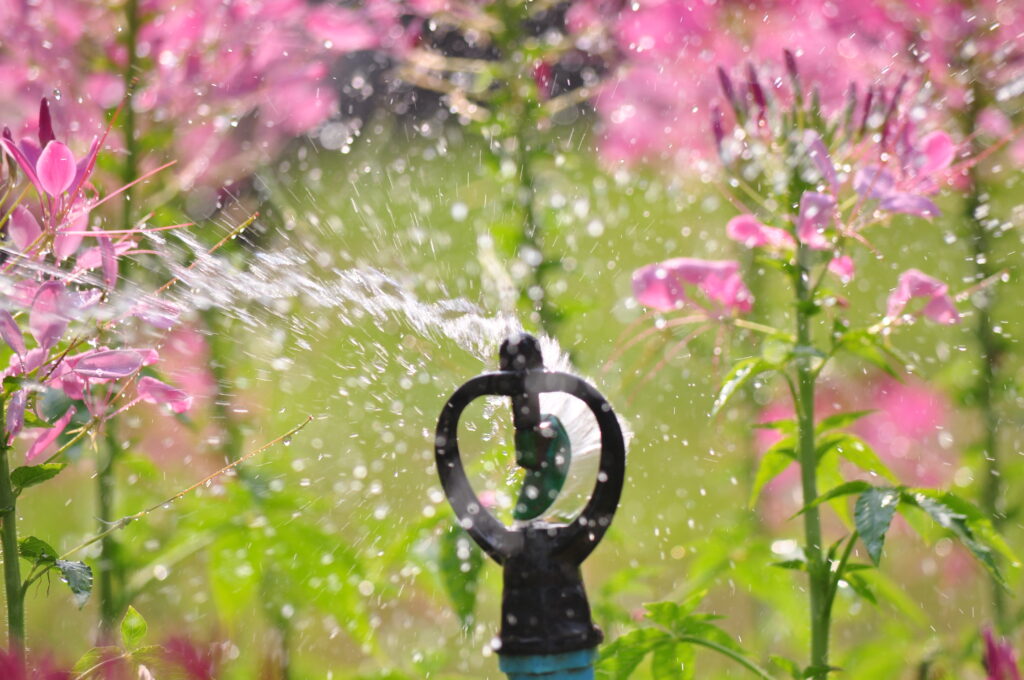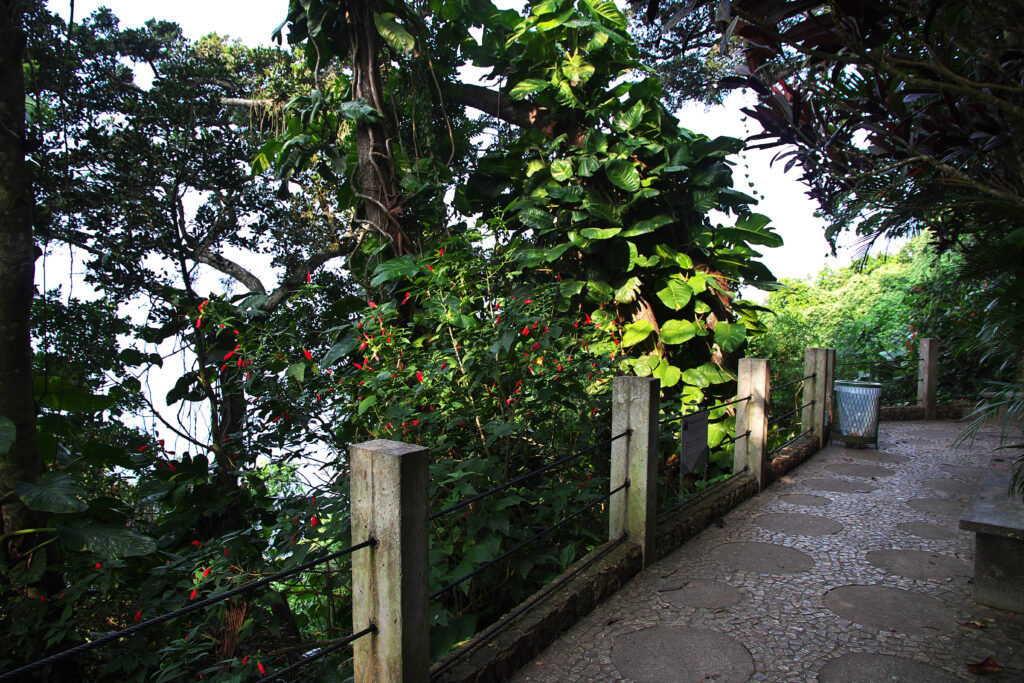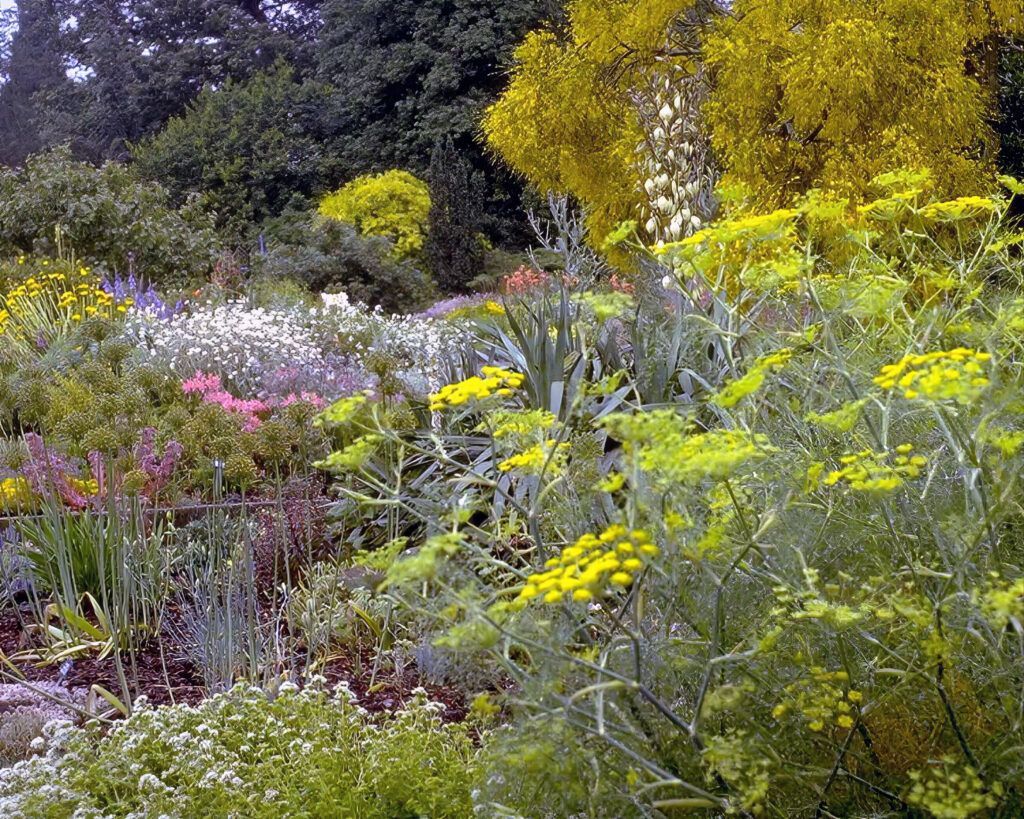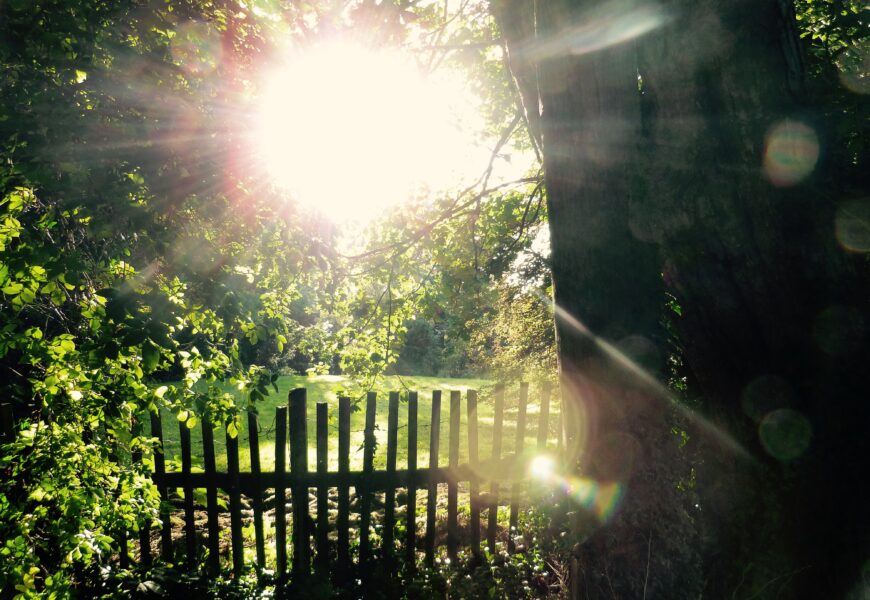When the sun beats down and temperatures soar, does your garden stand a chance? With a little know-how, gardening in hot weather doesn’t have to be hard. This article shares summer gardening tips to keep your garden cool and your plants thriving.
Learn about the art of mulching and the basics of summer plant care. Discover how to beat the heat by modifying your gardening techniques. We’ll cover watering, creating protective spaces, and choosing heat-tolerant plants.
Find out how to keep your garden alive when it’s hot. Learn about effective practices like putting pots in the shade and watering deeply at night. Also, explore DIY irrigation solutions that can make a big difference.
With the intense sun, it’s smart to reduce chemical use in your garden. Learn about natural weed killers and fertilizers that are safe for your plants. Follow these summer gardening tips for a garden that thrives and looks great all season.
Managing Moisture: Essential Summer Watering Tips
As the mercury rises, keeping your garden vibrant is a delicate task. Watering in the evening helps reduce evaporation and gives plants enough moisture for hot days. This method cools the soil and lets water sink deep into the ground. It minimizes moisture loss and helps roots grow strong.

Using smart summer watering tips can save water and boost plant growth. Mulching is a great way to do this. A two-to-three-inch layer of organic mulch around plants stops weeds and keeps soil moist. Straw, bark, or leaf mulch keeps soil cool and moist, cutting down on how often you need to water.
Knowing how your soil holds water is key for gardeners. Sandy soils drain fast and might need more water, while clay soils hold moisture longer and might need less. Adding organic matter to your soil can help it hold water better and breathe better, leading to healthier plants.
Drip irrigation systems are another smart way to minimize moisture loss. They can save up to 50% more water than sprinklers by watering plants right at their roots. Watering at the base of plants also stops fungal diseases and makes sure water reaches where it’s needed most.
By using these summer watering tips, like watering in the evening and mulching, your garden can stay lush and green during the hot season. These methods make sure your garden is both beautiful and sustainable.
Shielding Plants from Scorching Sun: Creating Protective Spaces
Summer brings intense heat, making it vital to keep your garden cool. One great way is to create shade for your plants. Use climbing vines on trellises or arbours to cast shade and add beauty to your garden.

Don’t forget the power of grass clippings. Leave them on your lawn to act as a natural shield. This helps keep your garden cool and supports heat-tolerant plants. It’s easy and good for the environment.
Consider using shade cloth canopies over your garden to cut down on heat. These are great for heat-tolerant plants and protect them from sun damage. Raised beds with 2 inches of organic mulch also help keep roots cool and retain moisture.
For more tips on keeping your garden healthy in the heat, check out Gardeningway. With the right strategies, your garden can stay cool and beautiful, even in the summer.
Heat-Tolerant Varieties: Picking the Right Plants for Your Summer Garden
Choosing the right plants for your summer garden care means picking heat-tolerant plants that love the sun. Echinacea, marigolds, and sunflowers are great choices because they’re tough and colorful. For those who love to eat from their garden, tomatoes and zucchini are excellent picks. They can handle the heat and produce a lot of food.
To make your garden ready for the heat, use plants that are native to your area. These plants know how to handle the local weather and help local wildlife. It’s important to choose plants that fit well with your garden’s ecosystem, like petunias or hot peppers.
Petunias, known for their resilience, can flourish even in the sweltering peak of summer.
When picking heat-tolerant plants, think about each plant’s needs. Sunstar Pentas grow 18-22 inches tall and spread 16-24 inches wide, making them great for pots or gardens. Sweet Caroline Upside Ipomoea grows 3-6 feet tall and spreads wide, filling your garden with color.
Knowing how to spot heat stress in plants is key to good summer garden care. Look out for wilting, curled leaves, and color changes. If you see these signs, try mulching, providing shade, or using transplant starters to help your plants.
Using local nurseries or extension services can give you the best seeds and young plants for your climate. These places offer plants that are made to survive and thrive in your area.

To make your garden last longer, try succession planting or using row covers. These methods protect your plants from the heat and let you enjoy your garden for more of the season.
By using these tips, you’ll have a beautiful, healthy summer garden. You’ll also help create a better environment for local wildlife in your own backyard.
Summer Gardening Tips to Keep Your Plants Robust in Extreme Heat
Adapting your garden for summer is key to keeping it alive. High temperatures and intense sun call for a smart approach to save moisture and protect your plants. Water deeply but not often, in the early morning or late evening, to help roots grow strong. This method also reduces evaporation, making sure your plants get the most from the water.
Using organic mulch is a great way to fight the heat. It keeps moisture in the soil, controls temperature, and stops water from running off. Adding compost to your soil helps it hold water better and feeds your plants. It also protects them from the heat.
Summer care also means protecting your plants from the sun. Use light-colored containers, shade cloths, and space out your plants for good air flow. Watch your garden closely during heat waves and give extra care to plants like tomatoes and beans that can’t handle the heat. But, enjoy the success of plants like okra and peppers that love the heat.
Keep an eye out for pests and diseases to keep your garden healthy. Use natural pest control, remove sick leaves, and plant things together to help each other out. The key to summer gardening is to watch, water, mulch, and shade your plants well. By doing this, you create a place where your garden can grow strong under the summer sun.





